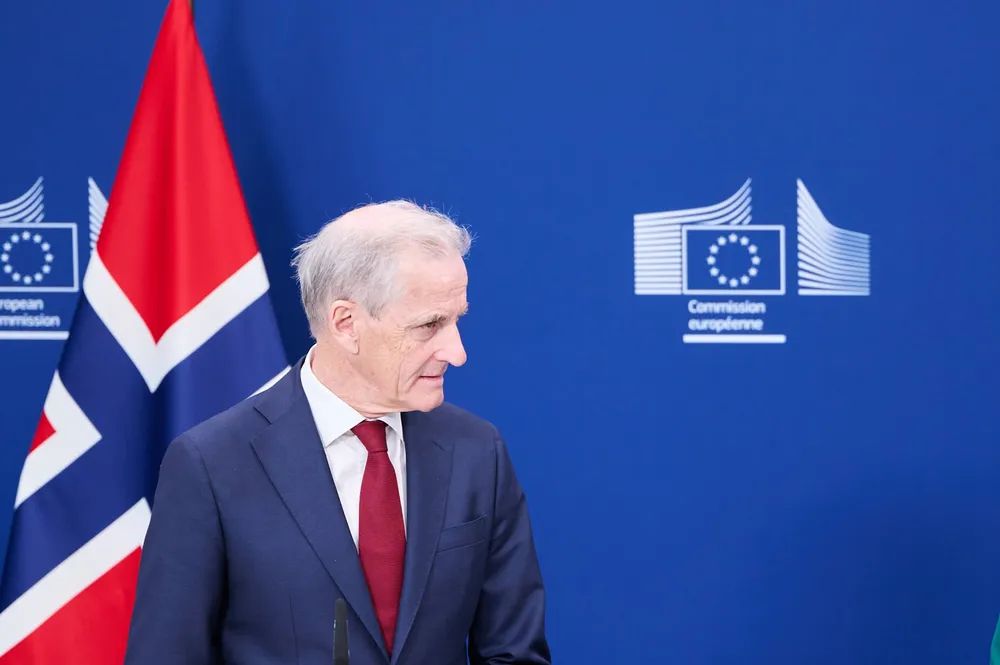After Norwegian elections: cross-party deals key to offshore wind support
Grid links to other countries also at stake as Prime Minister Støre despite winning vote needs partners in energy policy to back likely continued minority government

Political backing of offshore wind in general is likely to continue after Sunday’s parliamentary elections in Norway, but it is unclear how long the country will grant financial support or whether new grid links to other European countries will be built, sector experts point out.
Prime Minister Jonas Gahr Støre's Labour Party saw slight gains, winning 28.2% of the vote, followed by the significantly strengthened anti-offshore populists from the Progress Party with 23.9%, and the Conservatives with 14.6%.
While Labour would have a narrow majority of seats in parliament together with four smaller parties from the Left-Green spectrum, Støre will likely continue to lead a minority government, seeking cross-party agreements on a case-by-case basis on most policy issues.
In Norway’s energy policy, the dividing lines do not follow traditional bloc divisions – nor do they when it comes to offshore wind.
The smallish Red Party, for example, in principle would be in Støre's red-green camp, but the Socialist/Marxist outfit, like the populist right-wing Progress Party, is staunchly opposed to offshore wind.
“It could be an interesting exercise to secure a majority on offshore wind. In principle, it might have been possible to find a majority on the red-green side,” said Mats Arild Vedøy, an offshore wind adviser who previously worked for RWE and Norway’s METCentre.
“But given the Red Party’s critical stance on offshore wind, Conservative support may prove decisive in securing a majority.”
Vedøy pointed out that although the Conservatives are more reserved than Labour when it comes to financial support, there is still an understanding that subsidies for offshore wind development in Norway will be needed during the initial phase. The Liberals and Conservatives – both also in the centre-right camp - are also somewhat more sceptical of state subsidies.
“The Conservatives are clearer that we need to look more towards market-based solutions in the long term, also with regard to profitability,” Vedøy said.
Finance minister “Jens Stoltenberg has said that we cannot subsidise offshore wind indefinitely, and although Labour has been more explicit about state support than the Conservatives and the Liberals, I don’t think they are that far apart when it comes to practical policy.”
“It must eventually become profitable. But I believe it is right that the state contributes to the initial phase and to research and development.”
While Vedøy believes a “cooperation between Labour and the Conservatives will be key to reaching a compromise” on offshore wind, other dynamics following the outcome of the election could actually end up providing greater predictability for the offshore wind industry.
The strengthening of the populist Progress Party could prompt the (weakened) Conservatives to look for cooperation outside the centre-right bloc.
“Of course, a stronger Progress Party could create some noise in the discussions, but how much it will affect the outcome of policy remains to be seen.”
The issue of whether to connect Norwegian offshore wind farms also to other countries, or in general build more grid links between Norway and the rest of Europe, is another contentious issue in the Nordic country.
The Greens, Liberals and Conservatives support so-called hybrid cables to Europe, which the Socialist Left (another small potential partner for Støre) strongly opposes.
Jon Evang, offshore wind director at sector association Renewable Norway, believes offshore wind policy will continue along the current trajectory in the near future.
“In the short term, Labour will likely stick to the policy already laid out, and the composition of the Storting (parliament) will probably open up opportunities for broader anchoring across the blocs,” he said.
Evang added that a solution such as a cross-party compromise could be a possibility, while long-term opportunities are crucial.
“What matters most to us is the establishment of predictability, ideally in the form of regular licensing rounds. We also want continued work on grid solutions that can connect [Norwegian] offshore wind to European countries.”
Establishing cable interconnections to other countries takes time. Therefore, work on such connections must begin now if they are to be in place in time, Evang believes.
“This is long-term work that Norway should be part of. Dialogue with European countries must continue and be strengthened.”